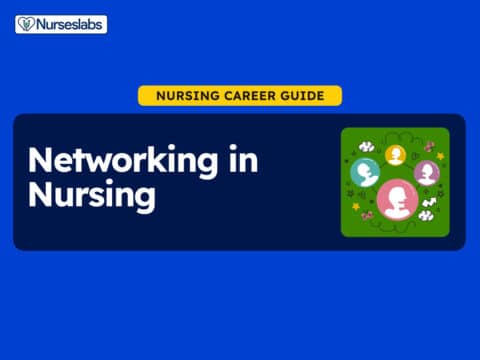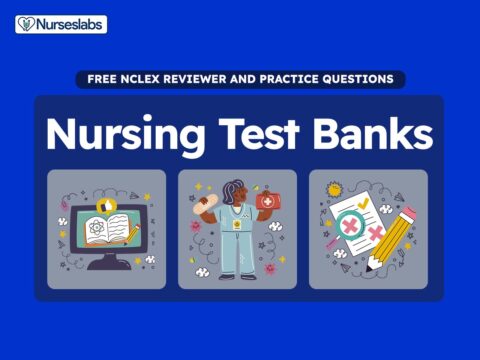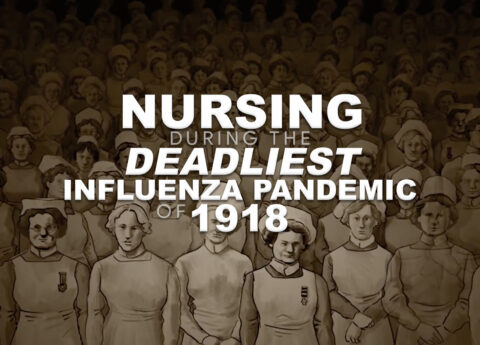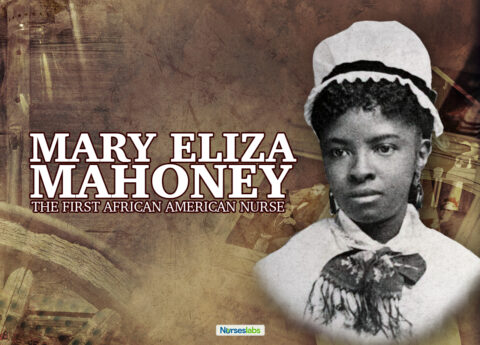Guess who are the people that ‘gives life’ to a hospital? Are they the charming nurses? Or their equally wonderful patients? Nah. Don’t bother choosing one because the answer is both.
Like a syringe in a needle, a macroset to an IV fluid, or a bed sheet on a hospital bed, these two individuals are inseparable. One is made for the other. Surely, what will be our essence without our patients? Besides, no other profession is rightfully fit to handle a patient. Is there anyone patient enough to attend your call light 60 times over the last hour? Or encourage you to pass gas?
I believe nurses should be bestowed upon by the ‘gift of composure’ to aid in facing different natures of a patient. Knowledge is power. Knowing the different kinds of patients makes us familiar on how to approach them. Although not all are easy to deal with, nonetheless most are worth the exhaustive and sleepless shifts.
Are you familiar with them?
1. The Giver
How to approach: Let them have their ways but set control.
The giver can become a nurse’s best and worst patient. Why is that so?
I have once encountered a ‘giver’ during my college days. My colleague who was assigned to the patient will not leave empty-handed whenever he moves out from the patient’s room. Either in cash or kind (which he always decline to receive), this patient will give you something in return will make the nurse feel appreciated. Would you believe that we were given a whole sack of vegetable on our community exposure?
That’s the good news. The not-so-good part is they may expect more attention in return. Although this doesn’t happen all the time, having this kind of patient must be controlled. It isn’t bad to accept their gratitude, but make sure to set limits since hospitals have clear protocols when it comes to accepting gifts from patients.
Humbly refuse these gifts that you think are ‘too much.’ The reasons? Your job and your patient-nurse relationship are at risk! As nurses, we don’t usually require an exchange for the quality service we give. If it comes from the heart, accept once and a while, and don’t forget to share. Sharing is caring, right? Your care is just given back.
2. The Omniscient
How to approach: Approach minimally but ensure presence is still felt.
Who is the habitually omniscient type? Yes, nurses, we belong to that kind – when we, ourselves, became patients.
The term omniscient means all-knowing. I regard this in a positive way. Health professionals are health experts. We are not oriented to be patients. Overworked nurses can become patients too. And mind you, if you’re a nurse nursing a nurse? You must read this post.
I once visited a nurse colleague admitted in a hospital who needs to have her IV reinserted on her right arm. Would you believe that she’s the one who was probing for the right vein and questioning the staff on how to properly insert it? Pretty hilarious scene!
She even holds the IV tubing and assists her nurse. Her oral medications were right on time. She just reminds her nurse on the time she took it. She even knows the cases of her fellow patients in the room.
I’m observing the nurse handling her if he will be annoyed or pleased with my friend’s attitude. Luckily, he understands the situation. For some who is annoyed to these patients, just put yours in their shoes to understand. Remember, offer minimal assistance but ensure readiness to provide care.
3. The Pessimist
How to approach: Therapeutic approach and offer self.
You informed them of their scheduled CT scan. Before you knew it, they already counted the remaining days of their lives.
The Pessimist. In fact, they can never be disappointed. Even before they enter your ward, they already are.
If you see this kind of patient, the best thing to do is offer yourself. What they need is a therapeutic approach: a helping hand and a listening ear. They need our accepting and empathetic care. Negativity is a defense mechanism to prevent being down whenever things don’t work out as expected.
As a patient advocate, in times of negativity, let us share our positive vibes. In cases of weakness, let us be their drive. During the last days of their lives, let them realize that each of the remaining days is still worth living. One therapy is to let them write down happy thoughts and be inspired with that. Remind them that even in our blood, God gave us something to be positive, the “B positive.” *wink*
4. The All-Time Favorite
How to approach: Equally as other patients, with a little extra kindness
We all have our ‘all-time favorite,’ the kind of patient that varies depending on his nurse’s preferences. A standard criterion is never enough. There were instances when you encountered someone who taught you a lesson even at their weakest, or someone whom you encouraged and inspired you in return. Include those whom you can comfortably call your friend rather than your patient, who treated you as a family, and helped you become a better nurse in your field. Sometimes toxic, but worthily toxic. Lucky you, it feels like you have found the ‘one.’
As professionals, we must treat them equally as other patients. During those times with them, a ‘little’ special treatment won’t hurt us. A nice talk and quality care will do. After all, what benefits the patient will benefit you. A contented patient means a happy, relaxed nurse.
5. The Bell Ringer/Demanding
How to approach: Identify own feelings and use positive approach
The call bell is his favorite thing in the world, next to his nurse. He presses the button seconds after you went out, or just as you close the door. I know, patience tested.
The ‘demanding’ can be an attention seeker, a malingering one or the one true toxic patient. It’s a nurse’s one little secret that when demanding patient calls in, you shall enter another patient’s room or, you know that ‘take your time’ walk? You can also try that.
Nah, just kidding.
No matter how difficult a patient is, we must understand. The most effective anxiolytic is patience and tolerance. If the Bellringer called you once, attend the need and ensure satisfaction. If that happens repeatedly without a valid reason, then address them calmly to avoid mounting of emotions, since they can also be difficult patients, which can be manipulative and angry at times. For nurses, identify your own feelings to prevent overpowering of emotions. That way, both of you and the patient will have a common understanding.
6. The VIP
The VIP is a special kind of patient made specifically for those nurses who encountered it. It’s not always, but there are times where a positively healthy person enters the hospital and occupied the highest paid room.
Visitors come and go like it’s the last time they’ll see him. There are usually no problems with this patient unless he becomes demanding. What we must be reminded during these cases are objectivity and equality. We must not be affected by the VIPs overwhelming status and focus on who needed our care the most. Unless they give us chocolates.
Care to add some more?





































Leave a Comment